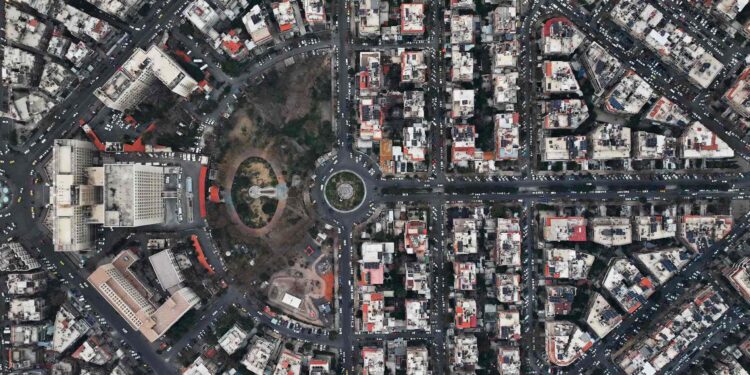The Financial Times said – in a report – that Syria is witnessing a radical economic transformation after the overthrow of the regime of ousted President Bashar al-Assad, as easing restrictions on the dollar and reducing customs duties led to an unprecedented influx of foreign goods that had been absent from Syrian markets throughout the years of the civil war.
This sudden economic transformation resulted from comprehensive changes in economic policies, which made markets flourish with imported goods.
A flood of imports
In the capital, Damascus, stores have witnessed a significant increase in the availability of imported goods that had been hidden from view for years, such as Turkish mineral water, Saudi stock cubes, and Lebanese milk powders.
Western brands have also returned to decorate store shelves, in a scene that symbolizes the return of economic life to normal, according to the newspaper.
In one of the major stores in central Damascus, an entire wall was dedicated to potato chips products, while an employee reported that consumers were the most enthusiastic about obtaining products such as cubed cheese and American soft drinks, adding, “Everything imported now is new. What we were selling before was produce.” All of Syria.
Previous legacy
According to the newspaper, the economic policies of the Assad regime were hindering the access of foreign goods to the markets. Since 2013, dealing in foreign currencies has been banned, and customs duties on imports have increased significantly, reaching, for example, $900 on iPhones.
This has forced Syrians to rely on local production or resort to smuggling to obtain unavailable goods.
The regime’s military checkpoints, especially the 4th Division led by Maher al-Assad, also imposed additional restrictions on the transport of goods, increasing production costs and raising commodity prices. Mahmoud, a vegetable seller in Al-Shaalan Market, explained that farmers were forced to hand over part of their produce at checkpoints. “The farmers had no choice but to submit to extortion. They needed to secure their livelihood,” he said.
Economic reforms
After the fall of the regime, the new government running the country’s affairs announced a series of economic reforms, most notably allowing dealing in dollars and reducing customs duties by between 50% and 60%, according to the Financial Times.
The Minister of Internal Trade, Maher Khalil Al-Hassan, previously stated to SANA that the main goal of these reforms is “to pump blood into the arteries of the economy, preserve institutions, and serve citizens.”
The impact of reforms on prices and markets
These reforms contributed to a significant decline in the prices of goods, both imported and local. For example, the price of a kilogram of Lebanese bananas fell by a fifth, while local potato prices fell to a quarter of their previous value. As for foreign products, such as ketchup, the price of a bottle reached 78 thousand liras, compared to only 14 thousand liras for the local product Doliz.
The markets also witnessed the return of brands that carry symbolic value to the Syrian consumer, such as some foreign cheeses, which sparked a wave of sarcastic comments on social media.
Continuing challenges
The Financial Times points out that despite the noticeable improvement in the availability of goods and the decline in prices, economic challenges still exist, as sellers indicated delayed payment of salaries, which led to weak purchasing power of consumers.
But some merchants confirmed that they feel relatively safe at work, as citizen Mahmoud says, “I no longer feel fear as was the case before.”
The Financial Times indicated that these economic reforms may constitute a major turning point in Syria’s economic history, while opening the door to foreign investments and increasing commercial activity.
However, the long-term success of these reforms depends on political stability and the government’s ability to implement sustainable economic policies that meet the needs of the Syrian people.
In light of these changes, Syria appears to be on the path to economic openness after years of isolation, as this period constitutes a real test of the ability to overcome challenges and build a more prosperous economic future.



